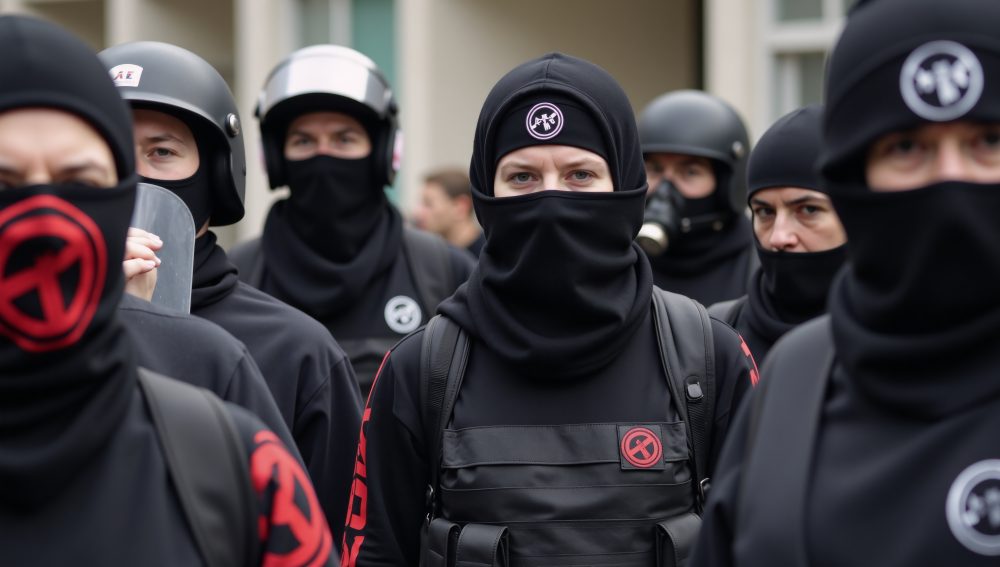A years-long lawsuit is shedding light on ANTIFA’s operations in Dallas, exposing the groups substantial local presence, reliance on the dark web, and its financial networks.
The court filings focus on two prominent figures: Christopher Guillott and Meghan Grant. Guillott is alleged to be a leading figure in the North Texas ANTIFA network, while Grant has emerged as a key operative with ties to the Elm Fork John Brown Gun Club (JBGC), a group linked to ANTIFA activities.
The lawsuit stems from a clash during a protest at a drag show marketed to children in April 2023. It highlights encrypted communication tactics, undisclosed evidence, and financial dealings, offering a rare glimpse into the group’s operations.
Grant was convicted in September for her role in an organized, violent attack on peaceful protesters outside a children’s drag show in Fort Worth. She is described as a central member of the JBGC.
Meanwhile, Guillott was found not guilty of assaulting a police officer, following a controversial prosecution by a rookie attorney assigned to the case.
A third alleged assailant, Samuel Fowlkes, who committed the assault on video, has had his criminal trial postponed.
Court documents reveal that Grant and Guillott relied on encrypted messaging through Signal, utilizing multiple devices and phone numbers.
Investigators uncovered a secondary phone used exclusively for Signal communications, while another device underwent forensic examination.
The timing of these communications suggests deliberate efforts to obscure exchanges with JBGC members.
In addition to Signal, the pair reportedly coordinated via Discord. Messages reveal logistical challenges, including data transfer and communication with other JBGC members.
Guillott is identified as the owner of the Elm Fork John Brown Gun Club’s social media accounts, further linking him to the group’s online presence.
Forensic analysis indicates incomplete production of discovery materials, raising concerns that critical evidence may have been withheld.
The review also uncovered decentralized fundraising efforts for legal defense, with payments processed through platforms like Venmo, CashApp, and PayPal.
Contributions included significant donations from the International Anti-Fascist Defense Fund and a European artist with ties to ANTIFA, who reportedly contributed several thousand dollars.
Although the financial transactions involved modest sums, the decentralized and anonymous nature of the funding raises broader questions about the group’s resources and financial strategies.
Since the lawsuit was filed last year, ANTIFA-aligned activities in Dallas have markedly decreased, with the group reportedly going nearly dormant compared to previous years.
This case offers significant insight into the methods, funding, and coordination of ANTIFA-related groups in North Texas. As public records continue to be disclosed, further details about their organizational structure and strategies may emerge.
Stay tuned for updates as this story develops.


